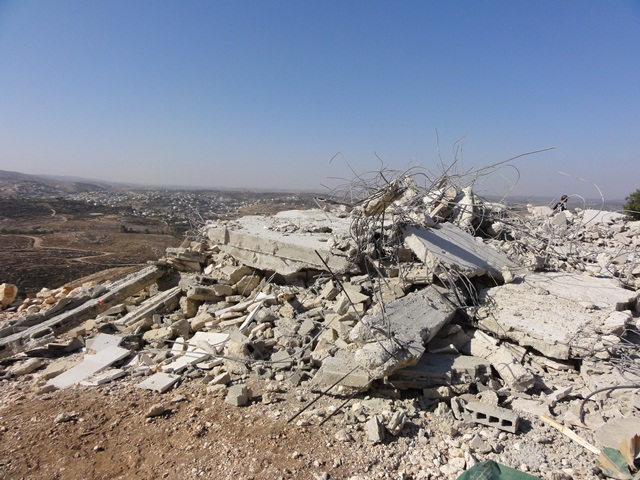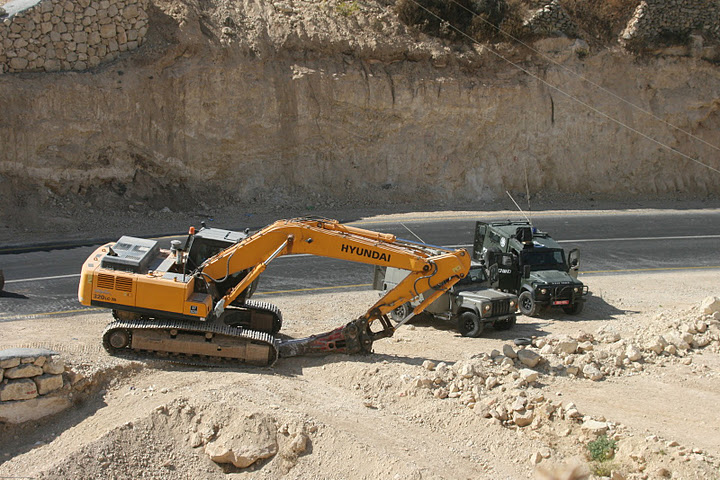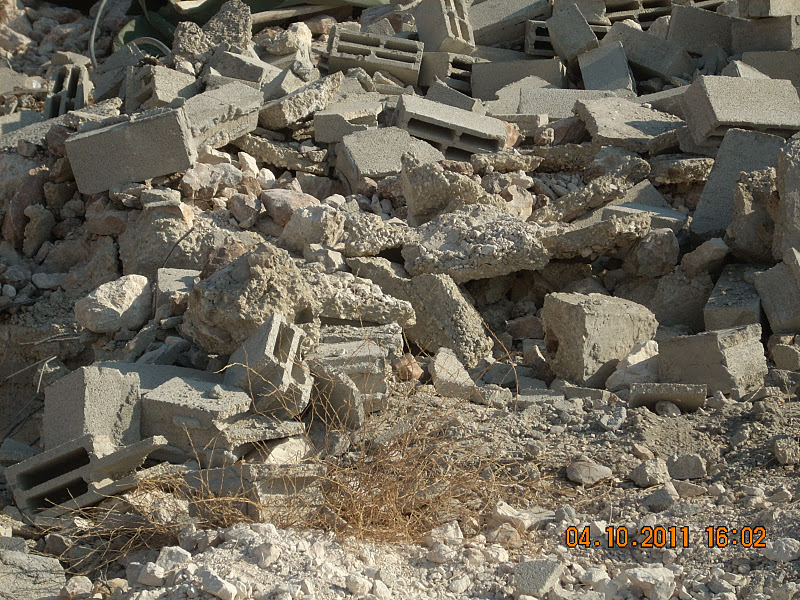Tag: House Demolition
-
House Demolition: Jab’a resident insists he will rebuild again
10th October 2011 | International Solidarity Movement, West Bank. On 10th October 2011 at 5am Israeli forces demolished a family home in the village of Al Jab’a, about 15 km southwest of Bethlehem. The owner, Sheikh Nasri, was farming his land at the time of the demolition. Nasri, 50, had been constructing the house for…
-
Beit Kahlil: Tear gas flies as Israel demolishes home
6 October 2011 | International Solidarity Movement, West Bank At 5:00 AM on the morning of the 6th October, approximately 30 armed soldiers came to demolish a house in Beit Kahil. The IOF woke up the family living in the neighbouring house and informed them about the demolition and declared the entire area a closed…



